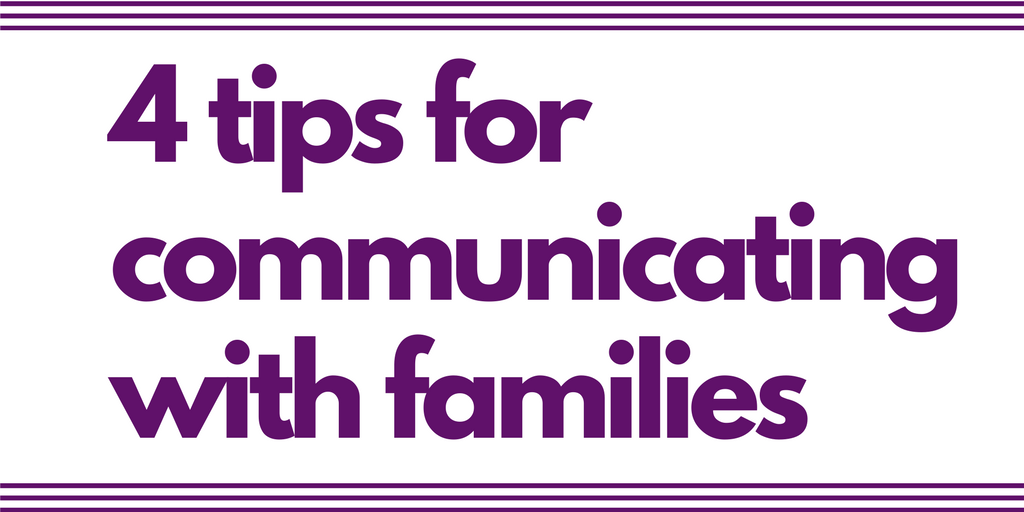I vividly remember the first parent who was furious with me—the expression on his face, the adrenaline rush I felt, and the shakiness in my hands after he left the meeting. The experience resonated with me because only later could I see his perspective and understand his frustration. I had a lightbulb moment and realized how important it was for my students that I be better able to not only communicate, but also truly collaborate, with their parents and families. Below are a few strategies and questions I have used since that experience to engage with parents and families in meaningful and effective ways.
Be Clear on the Desired Outcomes of Your Communication with Families
Whenever possible, having a clear purpose for communication with families supports everyone involved: the parent or guardian, you, and most importantly, the student who you both want to see learn, grow and succeed. Whether you are brand new to the profession or a veteran, reflect before reaching out: Are you sharing information? Seeking to understand a student better? Expressing a concern? In addition, remember that parents and students will also have desired outcomes for the conversation, whether openly stated or unspoken. Listening for and even asking directly what outcomes they would like to see respectfully invites collaboration.
Seek First to Understand
Just like students, parents want to be heard. When communicating with parents or other family members, consider ways you might listen more and talk less. One effective strategy early in the year is asking parents to share more about their child’s strengths. Another tactic is intentionally paraphrasing and asking questions to better understand any concerns. Attending to our own biases as teachers requires that we take a learning stance and make a conscientious effort to see the perspective of both our students and their families. If we can refrain from jumping to conclusions, we are far better able to truly meet each student where they are.
Recognize How Skillful Conflict Can Strengthen Relationships
Invariably, communication either builds or breaks relationships. This awareness can help us recognize that every time we connect with parents we are changing the relationship with them. When I remind myself that skillful, respectful conflict can actually strengthen a relationship, it can be easier to approach parents as partners, without necessarily agreeing with them. The lens that conflict is a necessary part of healthy relationships also helps me name the qualities I appreciate about a parent, even if our most recent contact was strained. How might viewing conflict as an opportunity to understand people better help you be less hesitant about actively engaging with parents?
Take the Long View
Parent communication for secondary students includes one quality which is less of a concern at the elementary level. High school students are moving towards being independent adults. Middle school students are approaching their own transition, moving into high school. Both age groups have different developmental needs, and as a result, parents are also realizing the ways they communicate for and about their children must change. Teaching secondary students, I often asked myself: What approach to communication would best meet this parent’s needs and also support this student in becoming an independent adult? I could talk directly with parents about the benefits of us together handing off increasing responsibility to the student.
Although I wasn’t able to repair the relationship with that first upset parent, I’ve remained grateful for the learning outcome—parents love their kids, and because they do, they can be invaluable allies to teachers. Which strategy do you most want to try today to build a partnership with students’ families?

